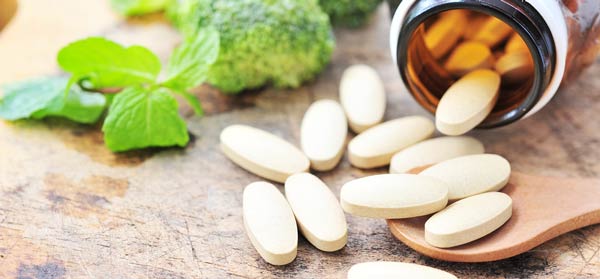Eating the recommended servings of fruit and vegetable has obvious health benefits, but it could be beneficial for your wallet, too. With over 57 per cent of YourLifeChoices’ members reporting that they take multivitamins or supplements, and with so many more looking to reduce costs in order to make their retirement savings last, eating more of the following foods could mean you save a small fortune by not having to buy multivitamins.
Apples
Apples are packed with vitamins, minerals and antioxidants and although one a day may not exactly keep the doctor away, studies show that people who eat apples are less reliant on prescription medicines. High in soluble fibre, potassium and vitamin C, it’s easy to see why apples are an essential part of a healthy diet. Make sure you eat the peel though, because that’s the best bit!
Nuts
Eating a handful of nuts each day will give you a good dose of healthy fats, protein, fibre and antioxidants. Research shows that people who go nuts for nuts have a lower death rate from cardiovascular disease. Nuts provide loads of minerals and vitamins, are high in magnesium, zinc and other important nutrients. But it’s best to eat them in moderation, though, because too much of a good thing can be harmful.
Berries
Berries, especially the darker, redder ones, are packed with the phytochemical anthocyanin, which is associated with a plethora of health benefits. Berries are also full of vitamins C and B and are a rich source of fibre, potassium and other minerals. Anthocyanin has been found to fight cancer, and other compounds present in berries can protect against bone loss, improve cholesterol and reduce inflammation.
Cruciferous vegetables
Vegetables such as kale, Brussels sprouts, bok choy, cabbage, broccoli, cauliflower, radish, turnips and watercress are considered superfoods that may even reduce the risk of cancer. Cruciferous veggies are so good for you that experts are considering giving them their own recommended intake levels, separate from that of standard vegetables. They’re packed with fibre, vitamins K, B, C and E, potassium and selenium, and can help deactivate carcinogens, fight tumours and protect DNA from damage.
Eggs
Being one of the only foods that is a natural source of vitamin D isn’t the only thing eggs have working in their favour – they’re also a complete protein, they contain all of the essential amino acids, and they’re a top source of nutrients and vitamins A and B, iron, selenium, choline and iodine.
Although some of you may still need to take supplements, by eating a range of fruits, vegetables, legumes, whole grains, nuts, proteins and healthy fats, you can incorporate important nutrients into your body in a far tastier and more natural way than by consuming them in pill form. But, as we always say, if you’re thinking of changing your diet or bypassing any previous nutritional advice, it’s best to seek the opinion of a health professional beforehand.
Related articles:
Five healthy fatty foods
Five best healthy eating articles
Eating well as you age

